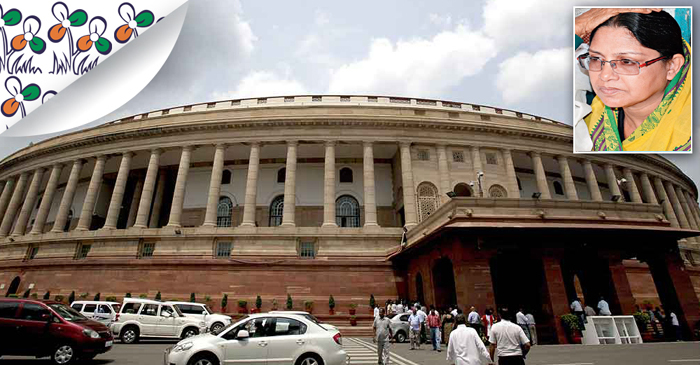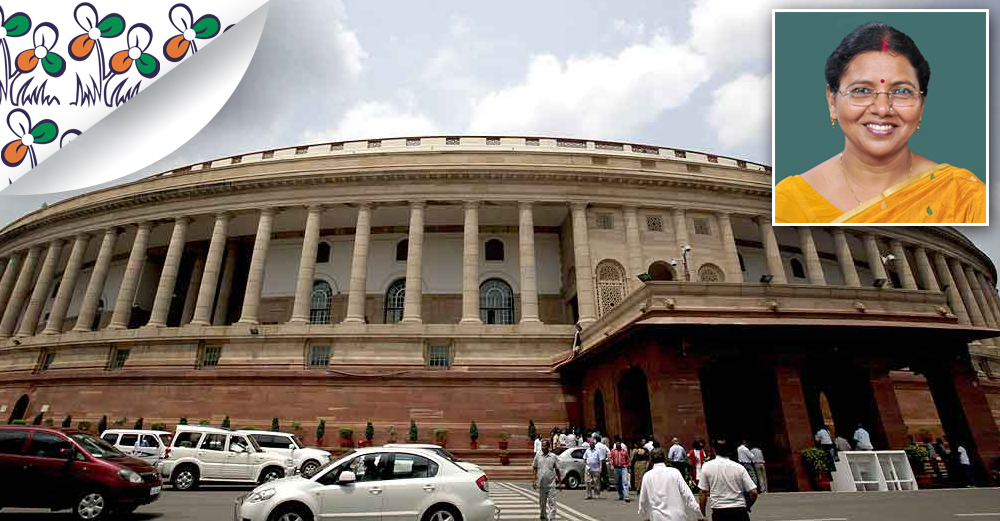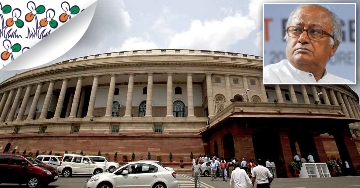Sir, this legislation has come up because of the directive of the Hon’ble Supreme Court dated August 25, 2014, whereby and where under the Supreme Court cancelled all allotment of the coal blocks because the Screening Committee from 1993 to 2009 allotted coal blocks in an arbitrary manner.
During the 15th Lok Sabha, I was the Chairman of the coal related Standing Committee. The Standing Committee said, even before the Supreme Court, that all allotments from 1993 to 2009 were illegal, arbitrary and it made two recommendations that said at least wherein the coal extractions have not been started, all coal blocks should be cancelled and immediately a policy should be formulated by the Government as regards distribution of the coal blocks. Unfortunately the then Government did not adhere to such recommendations and naturally the judgment of the Supreme Court had come on August 24, 2014.
Sir let me place it on record that we are in favour of distribution of any transparent system and there is no doubt that auction is one of the transparent systems. But in 2G scam case, when it came to the reference, the Supreme Court said auction is not the only criteria for distributing of the natural resources.
Sir, today we are mostly concerned about the power sector. 80% coal goes to the power sector to supply of energy and we get the electricity all over the country from there. Now there should have been a legislative policy by the Government for distribution of coals to the core sectors namely the power, coal, cement and steel. However the Government has chosen to go for auction for all sectors.
Sir, I do not find that end-use has been specified under the scheme of this Bill. For micro sector it has specified end use; if I go for mini i.e. cement, electricity, is there any clear policy that has been laid down except in Section 5? Section 4 is a general section where whoever comes and successfully bids in the auction will get it.
Now, Sir, question is how a cement industry can compete with power industry when it comes under Section 4? How a cement industry can compete with an iron industry when it comes under Section 4, leaving aside Section 5 itself? Sir, through you I want to place it before the Government that Section 5 gives you discretionary power and Section 4 gives you mandatory power. Therefore, whether power industry will get coal supply will solely be on the basis of the discretion of the Central Government. When Central Government exercises such discretion then only will they get it; core industries will not get coal supply as a matter of right automatically.
My first objection then is how the power industry will get coal? Where is the scheme of the Act which ensures supply of coal to all the power industries for generation of power that has not been specified?
If the electricity is not there everybody has to suffer. You are having a Public Sector Undertaking like the Steel Authority of India Limited; where have you ensured that your PSU will get supply of coal without any hindrance, without any discretion, without depending upon anybody. Where is that?
Now the Central Government PSUs have been equated with all private companies. After all it is a nationalised company, it is a government company. They must get priority; they must get privilege for supply of coal. That is my second objection to this Act.
Our beloved Late Prime Minister Indira Gandhi had nationalised coal. Sir, from 1972 to 2014, decades after decades, after putting hard labour the coal miners today have built up this coal industry. There may be some stray incidents or some faults but I must say that Coal India and its subsidiaries have delivered good result. They have built and ran the company for several years. Why are you going for privatisation? This is your company. Why are you not allotting coal blocks to Coal India and its subsidiaries? They are Central Government companies.
You formulate a policy. It is not that Supreme Court has said in future all coal blocks have to be allocated through the auction. Supreme Court has not said it. Why have you not formulated a policy, why have you not strengthened Coal India and its subsidiaries? Why are you not giving all coal blocks to Coal India and its subsidiaries? Formulate a policy for supply of coal to the core companies where from they can get supply. Therefore, there is uncertainty of getting the coal for power supply, for cement industry and iron and steel companies. This is a great concern for our Party.
I was talking with the Hon’ble Coal Minister a few minutes back. He was asking why we are opposing the as the State will get money. Sir, through you, I would like to inform the Minister, please remember the mines are the properties of all States. As a legislature you have the power to enact a law; so far coal is concerned, coal mines are properties of the states. I want to remind the Hon’ble Minister, you are not making any charity to the State Government. You are extracting, you are taking, you are making money from the State Governments’ lands, from the State Governments’ properties and trying to be benevolent to the State Governments.
Sir, they should create a positive situation which gives the confidence to the core industries. They should get uninterrupted supply of coal. There is no such positive scheme here. The confidence must be there. Today what is happening Sir, all industrialists who are in the core industries, they are thinking whether they will get the supply of coal or not. Why this confidence is not there? You have to ensure that core industry will get coal.
Through FDI nothing can be generated, nothing can be gained. You will not gain ultimately. This will have a disastrous effect in the future. Today you might gain some big names, some industrialists some persons but at the cost of the poor people of this country. If you bring FDI in all respects it will bring a disastrous effect in our country.
Sir, why did you not consult associations like CII, FICCI, all chambers of commerce, Bengal Chamber of Commerce, Calcutta Chamber of Commerce, Bihar Chamber of Commerce, UP Chamber of Commerce and Odisha Chamber of Commerce? Why have you not taken them into consideration? Sir, I can remember when the Mines and Minerals Bill had come – earlier Government had legislated it – it was sent to the Standing Committee. In our Standing
Committee we considered the Bill for one year and we have given the chance of hearing to everyone concerned. Such a big legislation you are bringing without consulting them. Who will be the sufferer? Who will really be affected because of this concerned Bill?
Attempt, which has been made with this legislation, will destroy our economy. Sir, you are only interested in FDI but do not want to protect the interest of the Indian industrialists. Attempt to bring FDI, in all sphere of life will have disastrous effect in our country.
Sir, through you I want to know from the Hon’ble Minister where is your provision to monitor supply? If the other companies do not get supply where is the scope of monitoring?
Sir, I said that the Supreme Court did not say all coal blocks should be allocated by auction; it is the Government’s wisdom. I appreciate it. Why only auction? You could have framed a policy at least for the coal sectors, coal based company sectors, core companies to give the coal block through Central Government companies there it would have insured them. That could have been done.
Sir, there is no security and facility. This entire Act does not speak anything about the workers. The owner mints money at the cost of the poor labourers. What is their security in this Act itself? I do not know what the Government is going to do so far the coal industries are concerned.
Coal India and other industries have the JBCCI (Joint Bipartite Committee for the Coal Industry). They enter into an agreement and that agreement speaks about the conditions of service, improvement of service of the coal workers. What is your intention? Will all industries be brought within the JBCCI? Will the benefit of JBCCI will be extended to them or not? Will you kindly tell us what will be fate of the workers or will they be governed only by the State laws?
Sir, within the specified end use, another industry should have been included. I will request through you to the Minister, please try to include the gas sector. Production of gas through coal… Other countries like Australia have developed production of gas. Kindly include it and give some concession to gas.
At the end I will again say that unless core industries are secured this legislation cannot get its life in future. One day it will create frustration among all the industrialists of the country. With this Sir, I will make a request to you this Bill should be referred to the Standing Committee; it is a very important Bill, needs thorough discussion.
Thank You.







